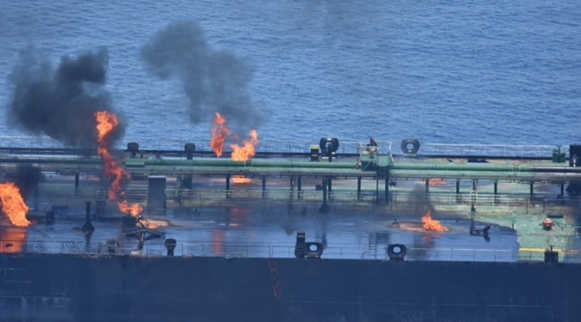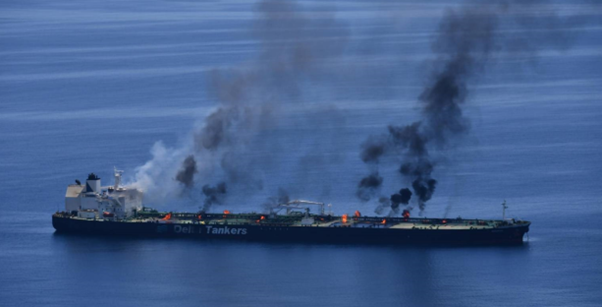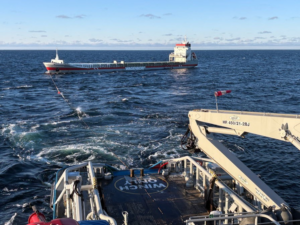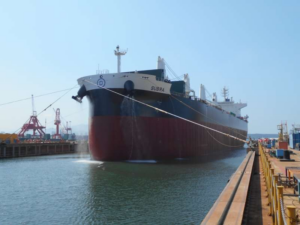
The Greek-flagged tanker Sounion, whose crew has been forced to abandon the ship after a series of attacks by Houthis on August 21, has been on fire since August 23rd. The stricken tanker now sits immobilized in the Red Sea, where it is currently on fire and may be leaking oil, according to the US Pentagon.
However yesterday in a short media post on X (former twitter), the European Union’s Naval Force (EUNAVFOR) operation ASPIDES reported that there’s no oil spill but the ship poses both a navigational risk and a serious and imminent threat of regional pollution.
EUNAVFOR ASPIDES has reported that there are fires detected in several locations on the main deck of the vessel.
The US Pentagon Press Secretary Air Force Maj. Gen. Pat Ryder in a press conference on August 27 stated: “The MV Delta Sounion now sits immobilized in the Red Sea, where it is currently on fire and appears to be leaking oil, presenting both a navigational hazard and a potential environmental catastrophe. Although the Houthis have claimed that they’re conducting these attacks in support of the Palestinian people, their actions prove to the contrary.”
To remind, the tanker came under an attack while sailing 72 nautical miles west of Hodeidah in Yemen on the Red Sea.
As reported by the Greek shipping ministry, the vessel was sailing from Iraq to Greece with 25 crew members, foreign nationals.
The crew has since evacuated the ship with the assistance of a partner nation vessel.
Specifically, the French destroyer was dispatched under the European Union’s ASPIDES operation, in coordination with the French forces stationed in the United Arab Emirates, to assist the stricken vessel.
The French destroyer successfully thwarted the attack and proceeded to evacuate the crew members.
Pat Ryder said on Tuesday at a briefing that US Central Command monitors the situation and is coordinating with other maritime partners in the region to determine how best to assist the vessel and mitigate the potential environmental impact.
“In fact, these are simply reckless acts of terrorism which continue to destabilize global and regional commerce, put the lives of innocent civilian mariners at risk, and imperil the vibrant maritime ecosystem in the Red Sea and Gulf of Aden, the Houthis own backyard,” he added.
Update on M/V SOUNION:
— EUNAVFOR ASPIDES (@EUNAVFORASPIDES) August 28, 2024
The M/V SOUNION has been on fire since August 23rd.
EUNAVFOR ASPIDES 🇪🇺 operating assets in the area have reported that there are fires detected in several locations on the main deck of the vessel. There’s no oil spill, and the ship is still anchored and… pic.twitter.com/urJIZ0Y5AW



